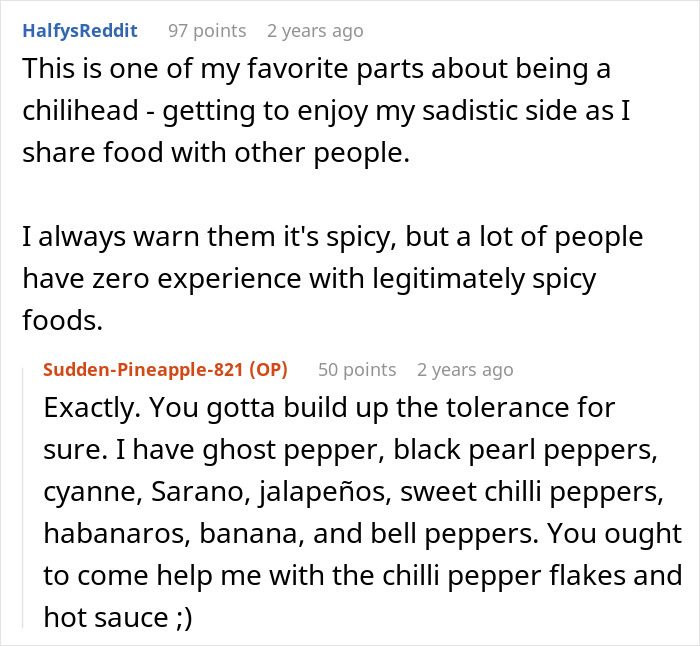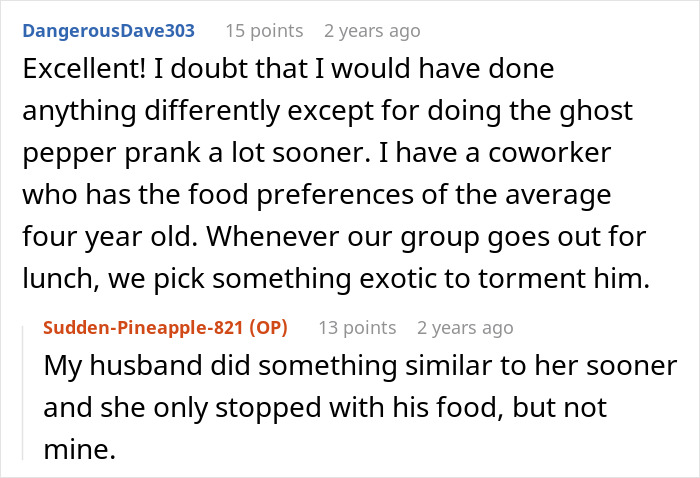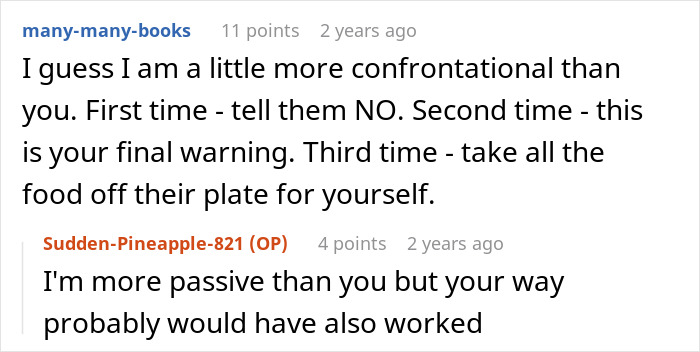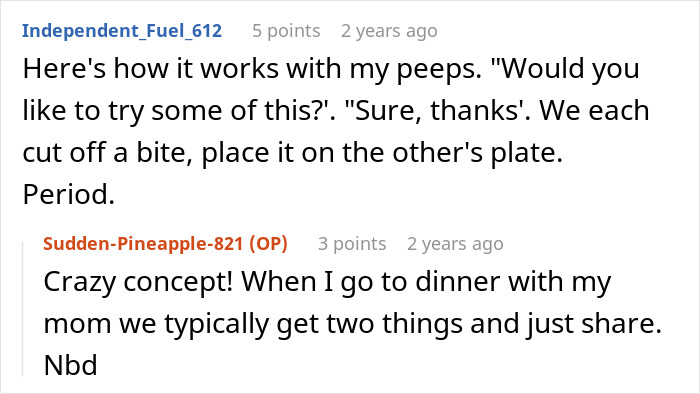There are many ways a roommate can annoy you. Helping themselves to a plate of your dinner might just be one of those ways. Indeed, according to a 2025 National Student Accommodation Survey by Save The Student, 24% of people hate when their roommate steals food.
This woman came up with an ingenious plan to deter her roommate from taking food off of her plate ever again. Instead of using regular cheese, she opted for a spicy secret ingredient. The result taught her roommate a lesson in why you should think twice before eating someone else’s dinner.
A secret ingredient in mac and cheese became a weapon in a woman’s revenge against a food-stealing roommate

Image credits: joshua_resnick / Envato Elements (not the actual photo)
Tired of the roommate always taking food off of her plate, the woman decided to deter her from trying her food ever again
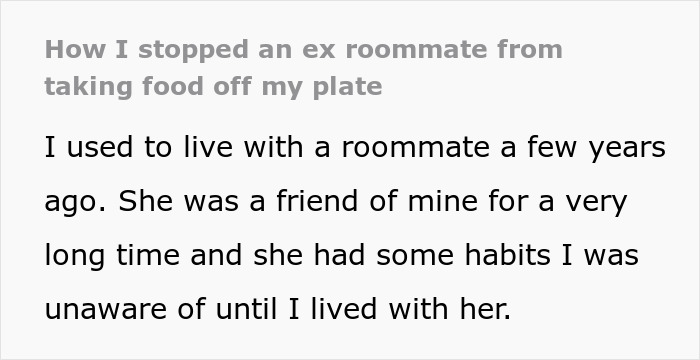




Image credits: Drazen Zigic / Freepik (not the actual photo)





Image credits: freepik / Freepik (not the actual photo)




Image credits: eakkachaih / Envato Elements (not the actual photo)



Image credits: Sudden-Pineapple-821
People generally don’t like sharing food; neither with their partners, their siblings, nor their friends
This story prompted an interesting discussion in the comments: is it okay for a roommate to ask to share your food? And with whom are people willing to share their food? “There’s literally only 1 person I’d allow that,” one Redditor shared, having their significant other in mind.
Yet to some people, even sharing food with a partner is off the table. A 2023 poll of 2,000 US adults found that two in three Americans wouldn’t share their meal with their significant other: what’s theirs is theirs.
20% of the respondents also said they would need to know the person for at least six months before they agree to share food with them.
In this case, however, knowing the person only hindered the woman’s wish to share food with her roommate. The Redditor described how the roommate’s loud chewing and sloppiness in the kitchen put her off.
You can know somebody pretty well and still not want to share your plate with them. Take siblings, for example: I know taking a Cheeto from my brother’s chip bag has been known to be a capital offense.
However, we find it easier to share food with people we have good relationships with
But why do we get so territorial with our food anyway? Some scientists explain that it’s our monkey brains taking over. Food is a resource, and we don’t like sharing resources, especially if they’re hard to come by. Meaning, if the food is good.
Animal behavior researcher Jennifer Verdolin, PhD, explained to Refinery29 that someone else taking food off of our plate is annoying because we see it as a sign of dominance.
And we get even angrier if they take the food after we’ve asked them not to. That’s why we only accept such behavior from people we know well, especially family members.
Sharing food is an indication of a close relationship, Dr. Verdolin explains. In chimpanzees, sharing food is linked to the release of oxytocin for both the giver and the receiver. “The release amplifies emotions, and creates a feedback loop,” she says. Therefore, it strengthens relationships.
Sharing food can actually strengthen bonds between people and make us more altruistic
It works similarly for people as well. For one, simply sitting down for a meal together makes us feel closer to other people. Researchers find that sharing meals is connected with greater subjective wellbeing.
Eating from the same plate also helps us make better business negotiations. When we eat the same food together, we’re more likely to trust each other and cooperate more easily, one study found.
Apparently, sharing meals makes us more altruistic and prosocial. Researchers at the University of Antwerp found that students who would share meals with their family in their early years would engage in altruistic behaviors (like giving up their seat in public transportation or helping their friend move) more often.
“Sharing food primes people to think about fairness (do I get as much as everyone else at the table?), authority (who is being served first?), and greed (Sometimes I cannot take as much as I would personally want),” one of the authors, Charlotte De Backer, explained to TIME.
People in the comments congratulated the woman on her spicy revenge and shared similar stories





